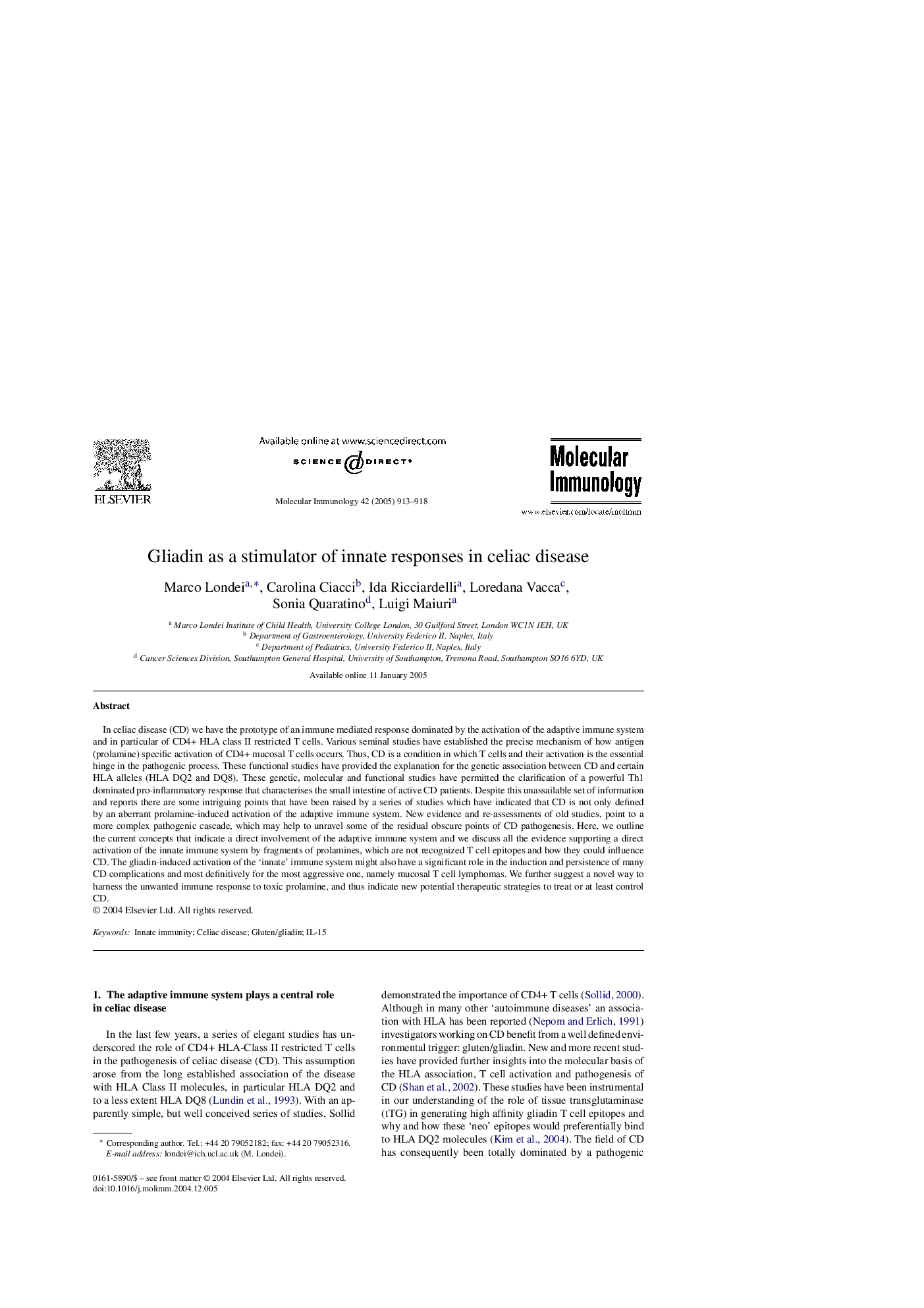| کد مقاله | کد نشریه | سال انتشار | مقاله انگلیسی | نسخه تمام متن |
|---|---|---|---|---|
| 9141965 | 1163890 | 2005 | 6 صفحه PDF | دانلود رایگان |
عنوان انگلیسی مقاله ISI
Gliadin as a stimulator of innate responses in celiac disease
دانلود مقاله + سفارش ترجمه
دانلود مقاله ISI انگلیسی
رایگان برای ایرانیان
موضوعات مرتبط
علوم زیستی و بیوفناوری
بیوشیمی، ژنتیک و زیست شناسی مولکولی
زیست شناسی مولکولی
پیش نمایش صفحه اول مقاله

چکیده انگلیسی
In celiac disease (CD) we have the prototype of an immune mediated response dominated by the activation of the adaptive immune system and in particular of CD4+ HLA class II restricted T cells. Various seminal studies have established the precise mechanism of how antigen (prolamine) specific activation of CD4+ mucosal T cells occurs. Thus, CD is a condition in which T cells and their activation is the essential hinge in the pathogenic process. These functional studies have provided the explanation for the genetic association between CD and certain HLA alleles (HLA DQ2 and DQ8). These genetic, molecular and functional studies have permitted the clarification of a powerful Th1 dominated pro-inflammatory response that characterises the small intestine of active CD patients. Despite this unassailable set of information and reports there are some intriguing points that have been raised by a series of studies which have indicated that CD is not only defined by an aberrant prolamine-induced activation of the adaptive immune system. New evidence and re-assessments of old studies, point to a more complex pathogenic cascade, which may help to unravel some of the residual obscure points of CD pathogenesis. Here, we outline the current concepts that indicate a direct involvement of the adaptive immune system and we discuss all the evidence supporting a direct activation of the innate immune system by fragments of prolamines, which are not recognized T cell epitopes and how they could influence CD. The gliadin-induced activation of the 'innate' immune system might also have a significant role in the induction and persistence of many CD complications and most definitively for the most aggressive one, namely mucosal T cell lymphomas. We further suggest a novel way to harness the unwanted immune response to toxic prolamine, and thus indicate new potential therapeutic strategies to treat or at least control CD.
ناشر
Database: Elsevier - ScienceDirect (ساینس دایرکت)
Journal: Molecular Immunology - Volume 42, Issue 8, May 2005, Pages 913-918
Journal: Molecular Immunology - Volume 42, Issue 8, May 2005, Pages 913-918
نویسندگان
Marco Londei, Carolina Ciacci, Ida Ricciardelli, Loredana Vacca, Sonia Quaratino, Luigi Maiuri,